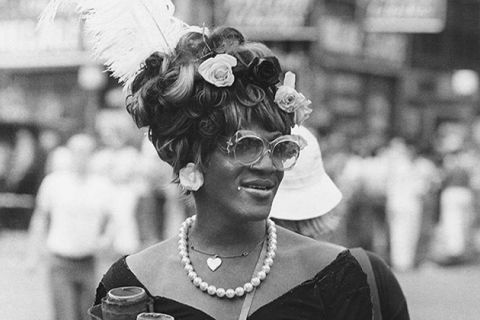The Not So Social Media: How Social Media Affects Mental Health
- Apr 23, 2018
- 4 min read

Photo via Google Images
Social media has become one of the main outlets of this generation. From posting a photo on Instagram to mindless scrolling on Twitter, social media platforms take up a good majority of our lives. Some of the time spent on social media can actually be useful, like talking with friends or learning new, useful information such as the news or a how-to on YouTube. But, studies also show that a lot of time spent on social media can actually have negative effects on our well being and our overall mindset. Here are a few examples of how social media affects our mental health:
It’s addictive
Ever spend two hours scrolling down your Twitter feed or your Instagram search page to kill time? If you answered yes, don’t fret, because it is more common than you would think. But, if you find yourself constantly needing to go back to these social media platforms over and over again so you don’t miss the latest Snapchat story or the newest Facebook post, then you may be addicted to social media. The term addiction formally means a compulsive behaviour that leads to negative effects. Social media addiction is triggered by the constant need to feel like you’re “in the loop” or that you need to feel well-liked and accepted socially through other’s sharing, liking, or commenting on your post. There's no real way to tell if someone is addicted to social media, but if you feel constant withdrawal when you log off Twitter or close Instagram, then you may have a bit of an addiction. This can lead to other issues like anxiety, depression, and other mental problems if you are always relying on social media to give you comfort and joy.
It can trigger sadness or jealousy
As many people know, social media can cause a lot of sadness and jealousy because it can make us focus on what we don’t have. Platforms like Instagram and Facebook are notorious for sharing people's favourite meals, homes, and day-to-day activities with the rest of the world. When we see that someone is doing better than us financially or seems happier than us, we can easily become jealous and negative towards our own perceived lack of a "fabulous" life. It’s important to realize that people usually aren’t as happy as they seem in their online posts and that much more goes on behind the scenes. We can’t let ourselves fall into the trap of jealousy by dwelling on these things. By feeling envious of someone’s life, it can lead to feelings of sadness and depression and can really take a toll on our mental health.
The use of social media makes us less social
Social media ironically makes us less social. When we’re hiding behind a screen, we don’t practice face to face confrontation and rely more on texting and "snapping" to communicate with our peers. When on a bus or sitting at the park, we are often looking down at our phones instead of making conversation or enjoying the nature that surrounds us. Social media has the ability to make us less social and less open to talking to new people in a face to face interaction, and that isn't good for our mental health because it doesn’t develop our skills of socializing or dealing with different types of people. In fact, studies show that social media has a negative affect on our communication skills, making them weaker as we neglect face-to-face conversation. Instead of spending time "snapchatting" and "direct messaging," try picking up the phone or visiting someone to have a meaningful conversation and practice your social skills at the same time.
A time waster
We often spend so much time on social media that it makes us procrastinate. This can leave teens with minimal time for other important elements of life. Social media is often used as a distraction from all the things we have to get done such as school work, cleaning, or anything else that requires our commitment. Studies show that teens spend on average six to nine hours a day on social media! Think about all the things you could get done in six to nine hours! People often turn to social media when they become stressed or overwhelmed, but it is a vicious cycle because it leads to more time wasted and more stress to finish the task that you've been putting off. By procrastinating and using social media as a crutch to destress from your heavy workload, it can actually make things a lot worse. If wasting long periods of time on social media becomes habitual, it can lead to anxiety, chronic stress, and other adverse effects.
People must be cautious to not let social media consume their thoughts, opinions, and feelings. Remember, if Twitter shuts down for a day then you’re basically forced to have actual conversation, so you might as well practice now! Don’t let platforms like Instagram, Facebook, or Youtube influence you in unhealthy ways. Be social, take in your surroundings, and don’t spend too much time on social media because in the long run, life is too short to spend it glued to your device. Unplug and unwind from all the tweets, likes, and shares, and your eyes may be opened to all that you've been missing!




Comments